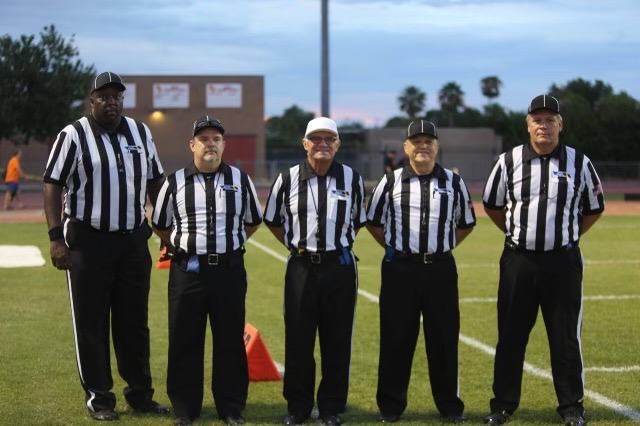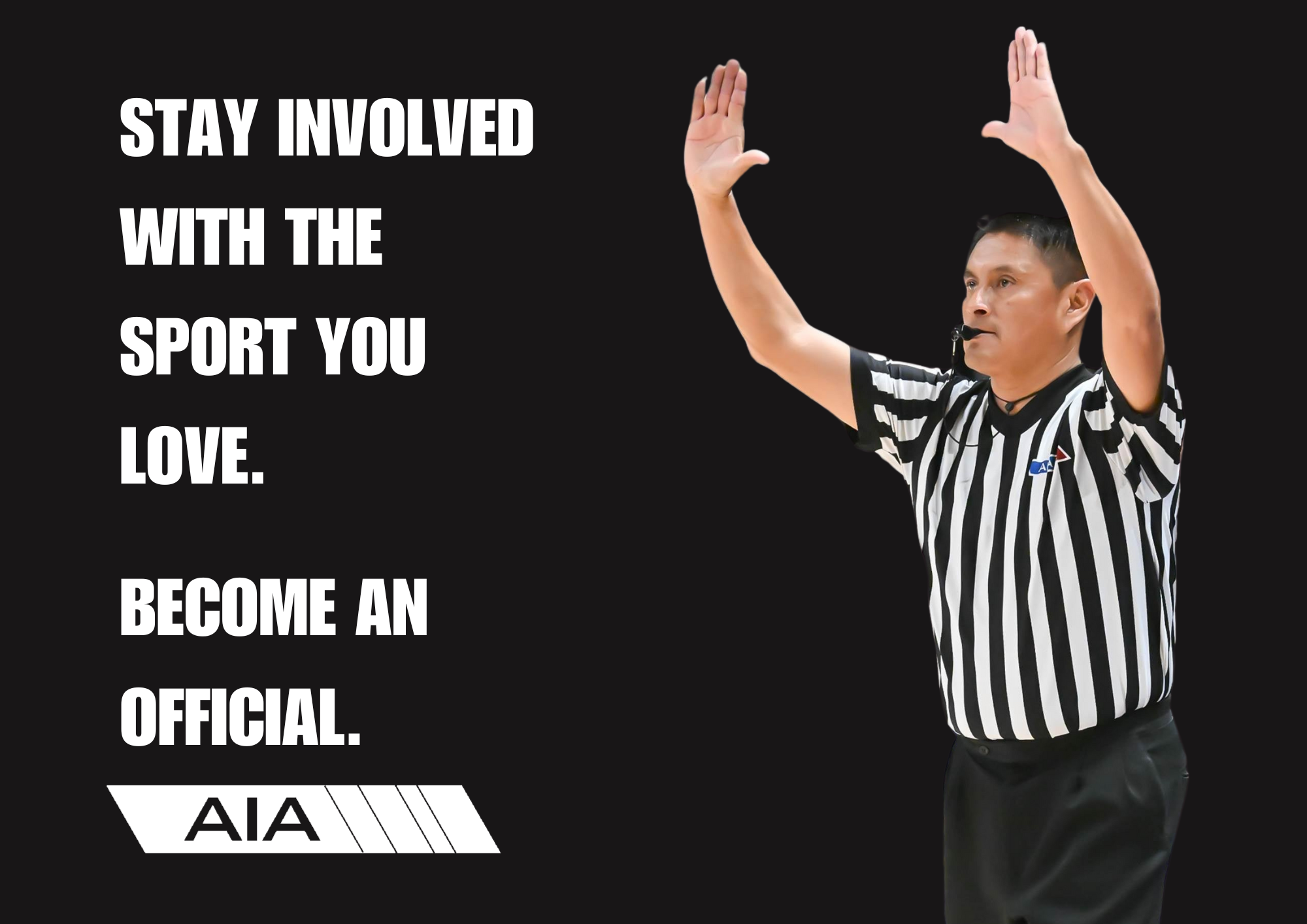After 38 years, referee Pat Peters is still running with kids
March 24, 2022 by Jordan Leandre, Arizona State University

Jordan Leandre is a student journalist at Arizona State University’s Cronkite School assigned to this officiating story for AZPreps365.com.
Like many sports lovers, Pat Peters believed he could be a better sports official than the ones tasked with doing games. After 38 years and counting as an Arizona Interscholastic Association official in six varsity-level sports, it’s safe to say, “Mission accomplished!”
Now 72 years old, Peters considers the fact that he still officiates football one of his proudest accomplishments.
“I’m running with young kids,” Peters said. “They keep me young.”
Like many others, his love for sports began at a young age.
“I got into sports when black-and-white TV was what we had,” Peters said. “I remember the first sporting event that I ever watched in color TV was the 1962 (Major League Baseball) All-Star Game. We’d go to basketball games. I was probably one of the few people in the student body that actually brought their mom to watch basketball games,” he added with a chuckle.
Baseball was Peters’ sport growing up, though the 1960s were unlike sports in 2022. Children didn’t “specialize,” as he described it. They played football in the fall, basketball in the winter and baseball in the spring and summer.
It wasn’t until 1984 that he seriously got into officiating, but not because he thought he couldn’t play anymore. It was because he thought the slow-pitch softball umpires in the league he played for were doing a bad job.
“I didn’t think the umpiring was that good,” Peters said. “I thought that I could do a better job.”
It doesn’t take thorough research to find riled-up sports fans complaining about officiating. The attitude has become an epidemic. Still, Peters went on to officiate six AIA sports: baseball, softball, basketball, football, girls volleyball and wrestling. Though he only officiates football for the AIA now, he never once cared what the fans said about his performance.
“Obviously, they’re a part of the game because they’re cheering their kids on,” Peters said. “But as far as actually knowing the game, knowing rules and whatever, no, I don’t count on them at all.”
One would think he’d unwind with something that isn’t sports-related, given the amount of time he devotes to games. Only that isn’t the case. While Peters enjoys hiking, reading and playing cards at the local senior center, he spends his free time on the golf course, watching sports on TV, or even reading up on baseball. There’s always something sports-related going on in Peters’ life, though lately he’s been sidelined with a broken leg he suffered on the golf course.
There’s a lot of mileage on his legs already, which is even more impressive when looking at the current landscape of officiating. In many parts of the country, there is a shortage at the youth and high school levels. According to a 2020 New York Times survey, 70% of officials quit within their first three years for many reasons.
“There’s just a lack of willingness to get out there and work with a lot of people,” Peters said.
But he stressed the importance of just giving it a chance, even if only to keep a person’s feet wet in a particular sport.
“The comradery that you acquire through working game after game after game … you draw a pretty nice network of people,” he said. “Here I am 35 years later … and I know hundreds of officials.”
There are drawbacks to officiating. Negatives include yelling from coaches, players and fans. However, Peters says that isn’t an excuse.
“That’s your job as an official, to go ahead and build trust and enter personal relationships with your sidelines,” Peters said. “Once you start getting that, and once they see it a few times and get their trust in you … a lot of the battle is already taken care of.”
What it comes down to is effort, in Peters’ mind. Giving the job an honest attempt.
“You gotta get out there and do it,” Peters said. “See if you like it. If you do, great. If you don’t … okay, fine. At least you gave it a shot."
Former athletes make the perfect candidates, according to Peters. Playing the game and knowing how it's officiated goes a long way toward becoming an official.
“You’ve already been engrained in the sport. You sort of know the built-in nuances of the sport and how it’s called,” Peters said. “We want people that have actually participated. At least I do … so they have at least a head-start."


